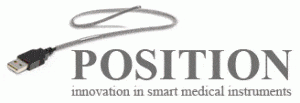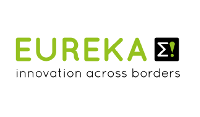Research & Development Projects

Interactive, Individualized, and Adaptive Brain Stimulation Therapy for Parkinson’s Disease (PD-Interaktiv)
Together through Innovation, 2018-2022
Joint project with Freiburg University Hospital, Department of Neurosurgery and the Albert Ludwig University Freiburg, Technical Faculty
Coordinated by CorTec, the project partners aim to develop a new generation of adaptive neuroimplants for the treatment of Parkinson’s disease.

Monitor Blood Sugar Levels Intelligently (PanaMEA)
Development of a new type of sensor implant, 2020-2023
European Cooperation Joint project with mfd Diagnostics GmbH, Pfützner Science & Health Institute GmbH, the Institute for Microelectronics, the University Hospital Tübingen and the NMI
In a joint project – with the participation of the NMI Natural Science and Medical Institute at the University of Tübingen – a new type of sensor implant is to be developed that can be used for long-term and safe monitoring of blood sugar levels.

Towards the Next Generation Smart Catheters and Implants (POSITION II)
ECSEL JU, 2018-2021
European Cooperation Project with 43 partners in 12 countries
It is the ambition of POSITION project to enable innovation in Smart Catheters and Implants by the introduction of open technology platforms for: miniaturization, in-tip AD conversion, wireless communication, MEMS transducer technology and encapsulation. These platforms are open to multiple users and for multiple applications.


Accelerate innovation in electronic medical devices (Moore4Medical)
Development of open technology platforms – HORIZON, 2014 -2020
The project addresses emerging medical applications and technologies that offer significant new opportunities for the Electronic Systems & Components (ECS) industry.
Moore4Medical receives funding within the Electronic Components and Systems for European Leadership Joint Undertaking (ECSEL JU) in collaboration with the European Union’s H2020 Framework Programme (H2020/2014-2020) and National Authorities, under grant agreement H2020-ECSEL-2019-IA-876190

Electronics systems for MRI-compatible neuro-implants
New Electronics Systems for Intelligent Medical Technology – Smart Health, 2018-2021
Collaborative research project with the University of Ulm and Max-Planck-Institute for Biological Cybernetics Tübingen
Under the leadership of CorTec, the project partners plan to research and develop the technological basis of MRI-compatible implants.
The project aims at developing the components of an active implant system which enables MRI examinations free of interferences. These components will be implemented into CorTec’s Brain Interchange system.


Developing a mobile,wireless system for recording field potentials from the brains of humans & awake, behaving animals (NAUTILOG)
EUREKA-Danube, 2018-2021
International collaborative project with Guger Technologies
Under the leadership of CorTec, the project partners aim at developing a novel, wireless recording system that is able to perform continuous recording of field potentials from the surface of the brain for research and diagnostic purposes.
Guger Technologies und CorTec both bring in their individual expertis in hardware like amplifier systems and electrode technology as well as in data processing to enable real-time mapping and research procedures. Medical and research related decisions can be taken in shorter time.

Implantable, Bidirectional Brain-Computer-Interface for the Restoration of Motor Functions (MOTOR-BIC)
KMU innovativ, 2015-2018
Collaborative research project with the University of Freiburg, the University of Ulm, the University Medical Center Freiburg, the University Hospital Tübingenand Max-Planck-Institute for intelligent Systems Tübingen
Under the leadership of CorTec, the interdisciplinary consortium will work towards clinical applications of CorTec’s Brain Interchange system.
Hardware and software development by the universities and by CorTec will be complemented by preclinical research and two pilot clinical studies. At the University Medical Center Freiburg, the clinical study will focus on the support of communication by paralyzed patients. At the Medical Center Tübingen, applications for stroke rehabilitation will be explored.

Inopro
Bringing Technology to the People, 2016-2021
Collaborative Project with 10 partners from industry, clinics and research,
coordinated by Otto Bock Healthcare
The program “Bringing Technology to the People” aims at enhancing the interaction of man and machine. Apart from other fields of use the BMBF especially wants to support the development of technologies which are easy to use and serve the real needs of the individual person.
The Innovation Cluster Inopro is focusing its research on intelligent prostheses and orthoses that can adjust actively to the needs of the person who is wearing them enabling an intuitive communication. One of the goals is to develop feeling prostheses which can sense touch and translate this into groping signals to the patient. CorTec contributes with its Brain Interchange technology to the project which will be responsible to establish communication between nerves and orthoses or prostheses.
Completed R&D Projects
Eurostars, 2015-2018
International collaborative project with Guger Technologies
The project aims at developing a next-generation tool for real-time brain mapping. The objective is to make neurosurgery quicker, safer, more cost-effective and informative.
The new system will be able to both stimulate and record as well as perform automated tests to identify important brain functions in real-time. The resulting data will help surgeons to avoid some additional mapping procedures and seizures, and to resect affected areas more effectively without impairing key functions.
ZIM (Central Innovation Program for SME, funded by the German Federal Ministry for Economic Affairs and Energy), 2015-2018
European Collaborative Project with Guger Technologies,
EUREKA Project ?! 9933
This project will establish the possibility to combine data from wireless external sensors with the brain data recorded by the Brain Interchange implant system. This will enable an adaptive neuromodulation approach that can react not only to brain signals, but also to externally measured physiological data (like movement, respiration, skin conductance, etc.).
ZIM (Central Innovation Program for SME, funded by the German Federal Ministry for Economic Affairs and Energy), 2015-2017
Collaborative research project with the University of Ulm
The project aimed at developing a novel prototype of the Brain Interchange implant system that is specifically adapted to preclinical research and will offer unprecedented flexibility and functionality.
To that end, a custom-designed microchip (ASIC) was developed and integrated into the system. In addition, further components of the implant system were improved significantly.
“Human-Machine-Collaboration”: Assistive Systems for the Support of Bodily Functions, 2012-2015
Collaborative research project with the University of Freiburg, the Bernstein Center Freiburg, the University Medical Center Freiburg, Incap GmbH and Multi Channel Systems GmbH
The project aimed at developing a system for communication and environmental control that can be operated by the user’s thoughts, thus enabling heavily paralyzed patients to regain a certain degree of independence.
KMU-innovativ (German Federal Funding for Innovative SMEs), 2011-2015
Collaborative research project with the University of Freiburg, the Bernstein Center Freiburg, the University Medical Center Freiburg and the University Medical Center Tübingen
In this project, CorTec’s implant technology was further developed for clinical use in collaboration with academic partners. In addition, the system was tested preclinically tested in preclinical experiments.
Partners in R & D
We conduct our research and develop new technologies within a strong network of partners at universities, hospitals, and in the industry.
Literature
We believe that scientific findings are the basis of innovation.
We base our developmental work on current global research as well as on our own findings.